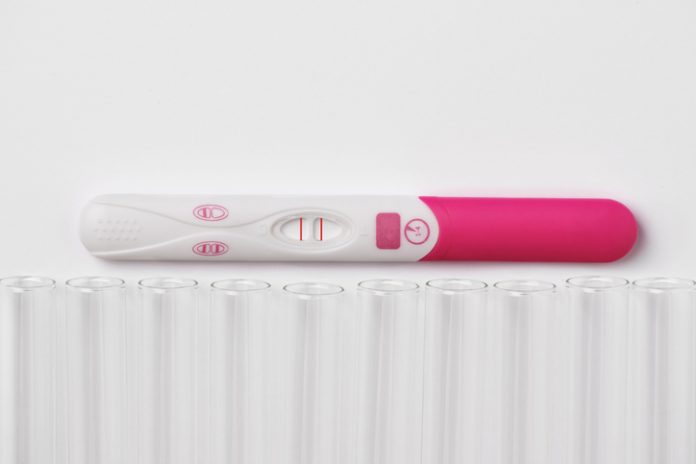A coalition of doctors and medical groups is suing the Food and Drug Administration (FDA) and the U.S. Department of Health and Human Services to reverse the agencies’ approval of the abortion-inducing drug mifepristone in 2000.
The Alliance Defending Freedom (ADF), a public interest law firm, is representing the plaintiffs, who are led by the Alliance for Hippocratic Medicine. The ADF successfully challenged the U.S. Supreme Court’s 1973 Roe v. Wade decision, which was overturned by the Court’s June 2022 decision in Dobbs v. Jackson Women’s Health Organization.
The ADF filed the complaint in the U.S. District Court for the Northern District of Texas, on November 18.
“By illegally approving chemical abortion drugs, the U.S. Food and Drug Administration failed to abide by its legal obligations to protect the health, safety, and welfare of girls and women,” the ADF states on its website.
‘Advanced Provision’
Chemically inducing abortions at home became more prevalent as a way to terminate pregnancies when FDA regulations were relaxed during the COVID-19 pandemic, reports The Wall Street Journal.
The FDA says it is “concerned” about health care providers prescribing medication abortion to women who aren’t pregnant, “an FDA spokesperson granted anonymity to describe sensitive agency policies told Politico,” Politico reported on October 31.
Prescribing mifepristone in advance of pregnancy is an unauthorized and potentially dangerous practice that prevents proper oversight of safety and effectiveness, the spokesperson told Politico.
“Advanced provision” is the explicit policy of some telemedicine providers, such as Choix, as well as some in-person providers, in reaction to state restrictions on abortion, according to a Bloomberg report.
In December 2021, the FDA began allowing physicians to prescribe abortion pills via telemedicine appointments and to ship them by mail to the patient, according to Politico.
‘Was All Very Predictable’
Concerned doctors have been warning the FDA for a long time about the advanced provision of abortion pills, says Ingrid Skop, M.D., an obstetrician and senior fellow and director of medical affairs at the Charlotte Lozier Institute.
“I’m glad they’re finally recognizing [the danger], but this was all very predictable,” said Skop. “We’re no longer making sure the person who gets the pills is the person who wants to get an abortion.”
The FDA has loosened the standards for abortion prescriptions over time, says Skop.
“When the FDA approved mifepristone in the year 2000, they had very strict criteria,” said Skop. “The doctor who was going to prescribe it had to intentionally register to be an abortion provider. They had to get specific training. They were required to give it directly to the woman. They were required to be available if the woman had complications.”
If an abortion failed, “someone who was able to perform surgery needed to be available,” said Skop.
‘Surprised When It Fails’
Non-doctors such as nurse practitioners and physician’s assistants can now prescribe mifepristone, and although a doctor is supposed to be available as a backup, that is not the reality, says Skop.
“What happens is these women are surprised when it fails [or] when they have a complication,” said Skop. “Many times, they don’t go back to the abortion provider, but they are afraid and [then] go to an emergency room.”
According to data from Europe, about 5 percent to 8 percent of women who undergo a chemical abortion fail to evacuate all the material, says Skop.
“They either hemorrhage or they have an infection, and they need to have surgery,” said Skop.
‘Dangerous for the Woman’
Advance prescribing of the abortion pill “is a very hazardous idea that has been under consideration by the abortion industry for some time,” said Genevieve Marnon, legislative director for Right to Life of Michigan,
“In 2019, abortionist Daniel Grossman applied for a clinical trial of advanced prescription of mifepristone; the trial has subsequently been withdrawn,” said Marnon.
Marnon said the risks of chemical abortions are underplayed.
“Self-diagnosed pregnancies in the absence of an ultrasound providing proper gestational dating and ruling out ectopic pregnancy makes chemical abortion dangerous for the woman,” said Marnon. “In the case of ectopic pregnancy, taking mifepristone could lead to the missed diagnosis and subsequent rupture of the fallopian tube.”
‘Removed These Restrictions’
Skop says part of the increased danger of chemical abortions is caused by changes to the Risk Evaluation and Mitigation Strategy (REMS) regulations that apply to certain drugs, such as mifepristone.
“What we have seen over time is that the FDA has progressively removed these restrictions little by little,” said Skop. “In 2016, they changed some of the REMS restrictions. It used to be that you could only do the abortion pill up until seven weeks’ gestation. They changed it to 10 weeks.”
The FDA also loosened its requirements for reporting complications, says Skop.
“They no longer required complications to be reported unless someone died,” said Skop.
‘Cut Doctors Out’
The requirement for the prescribing doctor to see the patient in person was eliminated because of the COVID-19 pandemic, says Skop.
“There’s no longer a physical exam required,” said Skop. “There’s no longer an ultrasound required. There are no longer labs required.”
Marnon says the pandemic renewed the push for self-managed abortions.
“For years, abortion supporters said an abortion decision should be between a woman and her doctor,” said Marmon. “Now they want to completely cut doctors out of the process.”
The arrangement also happens to be financially convenient for the industry, says Skop.
“They [abortion doctors] have charged historically about the same amount [for prescriptions] as they do for a surgical abortion,” said Skop.
Harry Painter (harry@harrypainter.com) writes from Oklahoma.
Internet info:
“Alliance for Hippocratic Medicine, et. al. v. U.S Food and Drug Administration, et.al., November 18, 2022: https://adfmedialegalfiles.blob.core.windows.net/files/AllianceForHippocraticMedicineComplaint.pdf




















